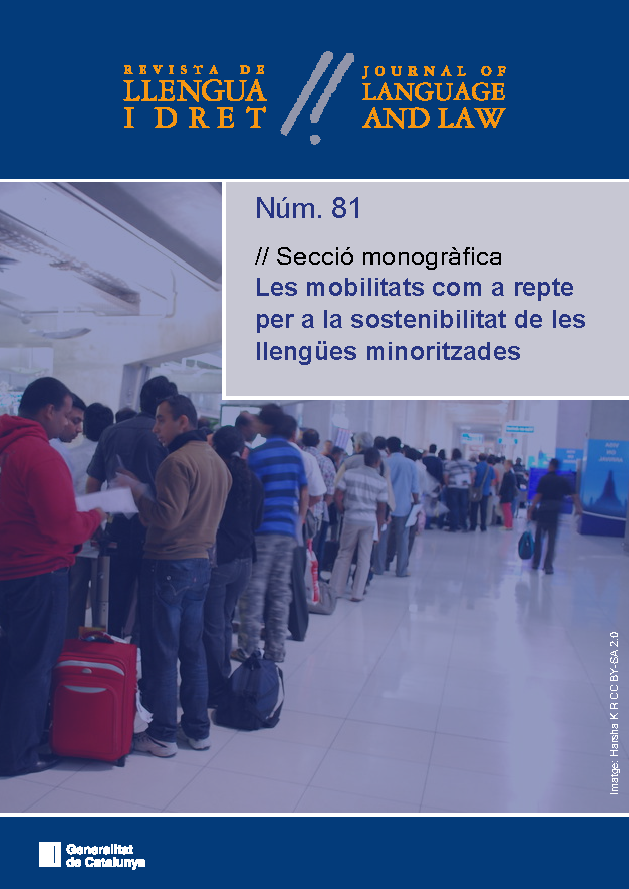From complex diversity to multilingual citizenship: Catalonia and beyond
Article Sidebar

Main Article Content
The article advocates adoption of the principle of multilingual citizenship to overcome unjust hierarchical relations between language groups in the context of hegemonic nation-states. It first outlines a heuristic model contrasting language-as-an-option and language-as-a-ligature to reconstruct the logic of cultural integration in the (monolingual) nation-state. Second, it shows how the implementation of this model in practice has become inextricably intertwined with structures of nationalist domination. Third, it fleshes out the concept of complex linguistic diversity to substantiate the claim that the relationship between citizenship, linguistic diversity and multilingualism must be radically redefined to transcend the monist bias built into the model of the hegemonic nation-state. Fourth, this approach is applied to the context of contemporary Catalonia, which offers a laboratory-like environment for studying the challenges of complex diversity and assessing the potential of auto-centred multilingualism for underpinning the formation of communities made up of and for equal and diverse citizens.
Article Details
(c) Revista de Llengua i Dret, 2024